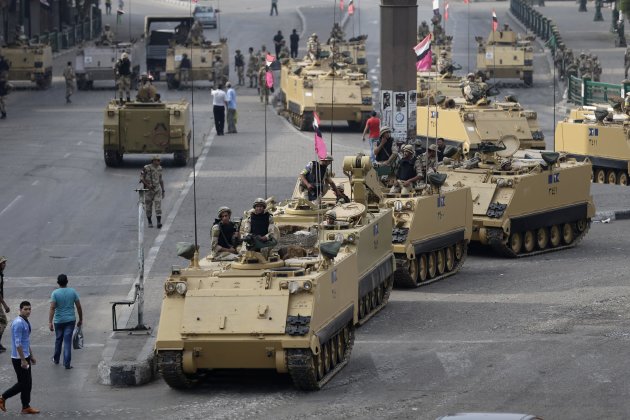- Joined
- Feb 26, 2012
- Messages
- 56,981
- Reaction score
- 27,029
- Location
- Chicago Illinois
- Gender
- Male
- Political Leaning
- Private
Just a few quick thoughts...
First, I believe the ongoing events in Egypt are a function of domestic rivalries (largest driver) and foreign response, including what has been a consistently reactive U.S. policy approach (small driver, but probably one that has made a marginal difference in the calculations of the parties).
Second, in my view, the U.S. should be very careful to understand that Egypt is a strategic state. As such, it should avoid hasty or emotion-driven policy responses. Such responses could actually backfire leading to greater rigidity among the parties (a transitional government fearing it must act more quickly and decisively and the Muslim Brotherhood's expecting U.S. policy to shift in its direction).
Third, the immediate policy focus should be on getting Egypt's government to work toward the goal of a stable permanent government. Parties willing to participate should be able to join in the process. Those unwilling to participate should not be compelled to participate, but the door should be open for their inclusion down the road once they are ready. The principles for a permanent government that should be enshrined in a future constitution should be inclusive, but with appropriate safeguards to protect the rights of all of Egypt's people.
Fourth, the U.S. should be working more, not less, with Egypt's military in developing appropriate rules of engagement for dealing with protests and violence so that civilian lives would be protected and bloody outcomes related to clearing protests could be avoided.
Fifth, the seemingly favored tactic of seeking a coaliton government should be avoided. The differences among the parties to the conflict are too large to allow for a stable and effective coalition government.
Heya DS.....that all can take place. Once the MB is kaput and their Sunni Clerics are silenced.

